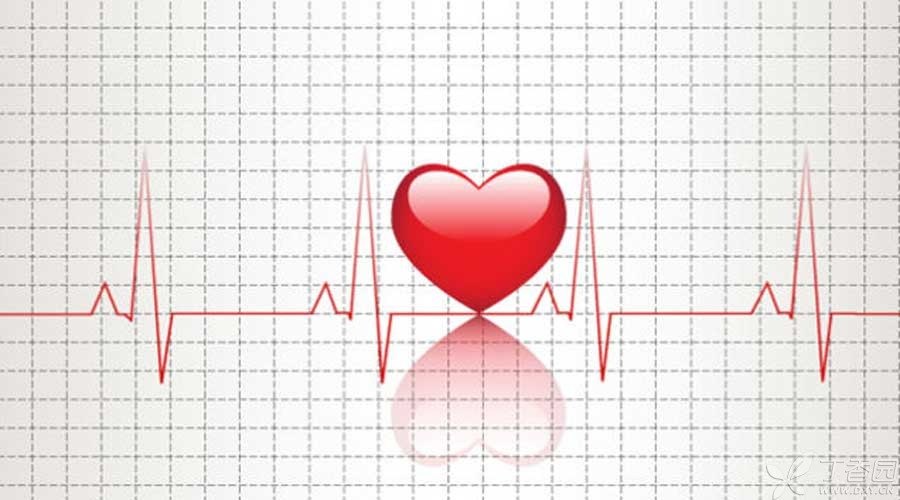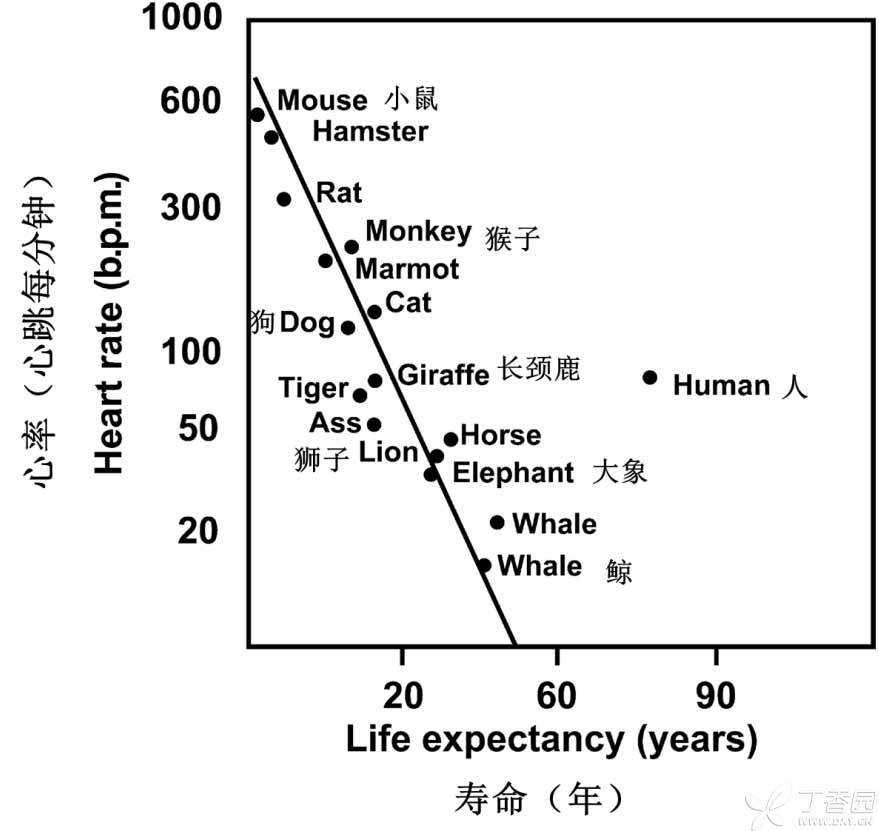
Wooden elephant, heart rate 40 times per minute, life span 80 years; The cheetah, which has the fastest speed on land, has a life span of only 20 years. The tortoise has a heart rate of 10 times and a life span of more than 100 years. However, fast mice have a heart rate of 450 times per minute, but their life span is only 2 years. Many sports fanatics are upset and say that athletes’ heart rate is slower than that of ordinary people. This is a misreading. No matter how fast they run, how high they run, how big their muscles are and how hard their fists are, how many of them live long? Life has been overdrawn in advance by sports. The more young and middle-aged people appear to be stronger than ordinary people, the faster they decline in the middle and old age. In the final analysis, there is a limit to the number of heartbeats in one’s life. When one reaches a certain limit, life will come to an end. So remember-life lies in rest.
This is a very popular post, which must have been read by many people. The main meaning is to say: exercise reduces one’s life, and life lies in rest. Seemingly reasonable, but in fact fallacious!
Exercise is good for your health, Not only is it energetic, It can also help control body weight, prevent or delay cardiovascular diseases, type 2 diabetes and certain cancers. The benefits of exercise, like the disadvantages of smoking, have been proved by a lot of medical research. Some people have refuted the above posts from the perspective of the benefits of exercise, so I will not talk about it.
The above post can attract attention, mainly because it mentions the relationship between exercise and life span.
Its poison lies in the pseudoscientific nature of its proof and reasoning. This is also the place where many other refutations have not been completely solved, thus many readers still have doubts, which will be emphatically refuted in this article.
Human beings are an exception!
As we all know, small animals with fast heart rate have short life span: elephants, for example, have a heart rate of about 30 beats per minute and a life span of about 70 years. Mice have a heart rate of 450 beats per minute, but their life span is only nearly one year.
Although the heart rate of animals varies greatly from life span, However, the number of heartbeats in various mammals is basically the same in their lifetime, about 2.5 billion (the difference between different animal species is within an order of magnitude). If the semi-logarithm of the heart rate of mammals is plotted against the longevity (see figure below), it is obvious that the longevity of animals is negatively correlated with the heartbeat speed.

Fig. 1 Relationship between heart rate and life span in mammals [1]
Therefore, it is not without basis to say that animals with fast heartbeat have short life span.
However, except human beings!
As can be seen from the above figure, human beings are obviously not on the negative correlation line between heart rate and life span. The heart rate of human beings is similar to that of animals such as pigs, cattle and dogs, but the life span of human beings is nearly four times higher than that of them.
Of course, the main reason for the human exception may be the progress of science and society. Perhaps without human evolution and scientific development, human beings would also be on the negative correlation line in the above figure. However, human beings nowadays have not relied on physical gathering and hunting as they did in ancient times, and the amount of exercise has been greatly reduced.
Therefore, if we must compare human beings with other animals, human beings should probably move more first.
Correlation is not equal to cause and effect.
Although the data in Figure 1 clearly show that, except for human beings, the heart rate of animals is negatively correlated with life span. However, correlation is not equal to cause and effect.
Not only is heart rate negatively correlated with life span, but also the weight of animals is roughly positively correlated with life span. Whales weigh up to 120 tons and live for about 80 years, while hamsters weigh about 60 grams and live for only 3 years.
Does weight gain lead to longevity?
Obviously, this inference is somewhat arbitrary. It is well known that the average life span of overweight people is shorter than that of underweight people, and even taller people are shorter than that of shorter people. For example, men under 1.75 meters tall have an average life span of nearly 5 years longer than men over 1.75 meters tall!
Correlation does not mean cause and effect. If the tortoise lives long because its heart rate is slow, then if the tortoise lives in the water, can it prolong its life by staying in the water like the tortoise?
This inference obviously does not hold water.

Can lowering heart rate prolong life?
The mice were given digoxin (a drug that can reduce heart rate), and the heart rate of the mice in the drug group was reduced and their life span was prolonged.
However, the researchers could not attribute the effect of prolonging life to the decrease of heart rate, because the mice in the drug group ate less and lost weight significantly compared with the control group.
Controlling calorie intake is the only proven way to prolong life so far.
Therefore, it is not clear whether the cause of the prolonged life span of mice taking digoxin is the decrease of calorie intake or the decrease of heart rate. It is still too early to say that lowering heart rate can prolong life span [1].
At this point, we can briefly summarize three points:
-
Heart rate is roughly negatively correlated with longevity in many mammals, but human beings are exceptions!
-
Correlation is not equal to cause and effect.
-
The results of animal experiments have not yet clearly proved that slowing heart rate can prolong life.
Note that none of these three points can be used to infer the loss of life due to exercise.

Does exercise have a what effect on human life span?
If it is true that exercise reduces one’s life as mentioned in the first post, then it should not be difficult to infer the following two conclusions:
- The life span of athletes should be shorter than that of the general public. People who exercise regularly should live shorter than people who do not exercise.
The original post mentioned above [as we all know, the average life span of sports athletes all over the world is only 55 years old, which is short-lived.]
I searched the athlete’s life span on the Internet and found no relevant data, so I don’t know where the [well-known] data in the original post came from, and there is no way to verify it.
But I found the following documents:
1. Olympic gold medalists live longer
A 2012 paper published in the British Medical Journal showed [2] that Olympic medalists lived an average of 2.8 years longer than the general control population. This is the conclusion drawn by the author after counting the life expectancy of 15,174 Olympic medalists from 1896 to 2010 and comparing it with the control population matched by nationality, age and sex.
Some people will say, Not all Olympic sports are very intense (such as shooting). If it is not enough to look at the data of Olympic medal winners, Then let’s look at the life span of Tour de France cyclists. The Tour de France is perhaps the cruelest competitive sport in the world. If the sport reduces the life span, should the life span of Tour de France cyclists be shorter than that of ordinary people?

2. The death rate of Tour de France cyclists is lower.
A paper published in the European Heart Journal in 2013 showed [3] that the death rate of Tour de France cyclists was 41% lower than that of the same control group. This is the result of the author’s statistics on the death rate of 786 French drivers who participated in at least one Tour de France between 1947 and 2012.
Well, these are all excellent athletes. Maybe they have good genes, or their outstanding results have brought them extraordinary living conditions and living status.
Let’s look at the data of ordinary people again.
3. Regular exercise can prolong life span.
In 2012, researchers at Harvard University showed through decades of follow-up data of nearly 650,000 people over 40 years old [4] that:
- Walking fast for 75 minutes a week prolongs the average life span by 1.8 years compared with those who do not exercise. Walk fast for 150 minutes every week, prolonging the average life span by about 4 years (3.4 ~ 4.5 years); People who exercise regularly and maintain normal weight live 7.2 years longer than obese patients who do not exercise. Low exercise can reduce mortality by 20%. Moderate exercise reduces the mortality rate by about 40%.
Seeing here, people who believe in scientific basis should not be difficult to come to the conclusion that sports not only do not reduce life span, but also prolong life span!

Is there a contradiction between [high heart rate and short life span] and [prolonging life through exercise]?
So far, we have enough evidence to make two points clear:
- Animal life span is roughly negatively correlated with heart rate. Exercise not only does not reduce life span, but also prolongs life span.
Some people may ask, do the two look contradictory? Why do athletes live longer than ordinary people under the same conditions?
There may be many reasons, but the enhancement of cardiopulmonary function and the decrease of resting heart rate caused by exercise are exactly one of the most likely main reasons.
1. [Athlete’s Heart]
The resting heart rate of normal people ranges from 60 to 100 beats per minute (we can take an average of 75 beats per minute). The heart rate of athletes is lower than that of ordinary people. Even ordinary people, after a period of training, the cardiopulmonary function increases, the cardiac output per beat increases, and the normal resting heart rate will also decrease, even as low as below 60 beats per minute.
This phenomenon is called [athlete’s heart], which is not only normal, but also a sign of strong myocardial function.

2. Comparison of heartbeat times between long-term exercisers and ordinary people
Let’s do arithmetic together to compare the heart rates of ordinary people and athletes.
Assuming that normal people do not exercise and maintain a resting heart rate (75 beats/minute), the daily heartbeat is:
75 x 60 x 24 = 108,000 times
Assuming that the athlete exercises for one hour a day, the heart rate is 140 beats/minute when exercising violently, and the normal resting heart rate is 60 beats/minute, then the total number of heartbeats of the athlete at the end of the day is:
140 x 60 x 1 + 60 x 60 x 23 = 91 200 times
Obviously, at the end of the day, athletes have fewer heartbeats than normal people who do not exercise!
3. Borrowing the Logic of [Limited Heartbeat]
Borrowing the logic of “there is a limit to the number of heartbeats, and if one reaches a certain number of heartbeats, one’s life will come to an end”, then athletes should also live longer than those who do not exercise, and the data quoted in the above literature are indeed the case.
Speaking of which, the fallacy at the beginning of this article will not break itself.
People are creatures, not machines, and cannot calculate the length of life by simple loss analogy. Proper exercise will bring about improvement of body function, reduction of resting heart rate and extension of life span. Never neglect the adaptability of the human body.
To remove the false and preserve the true, life lies in sports.
In the age of the Internet, there is a lot of spam on various social media, and I believe most people have the ability to identify it. However, it is easy to be fooled by citing seemingly scientific evidence, using imprecise reasoning and spreading health rumors in the guise of science.
This kind of information can only be called [posts], not articles. Because they have no signature, no citation of evidence, logical reasoning absurd. It is suggested that when reading fitness information, you should think more and distinguish the true from the false from the above angles.
Rest or exercise is a personal choice. People who believe in rest will still rest, which is understandable, but don’t spread scientific rumors to frighten people.
As for myself, I have written this article through literature review, and I firmly believe that life lies in sports.
